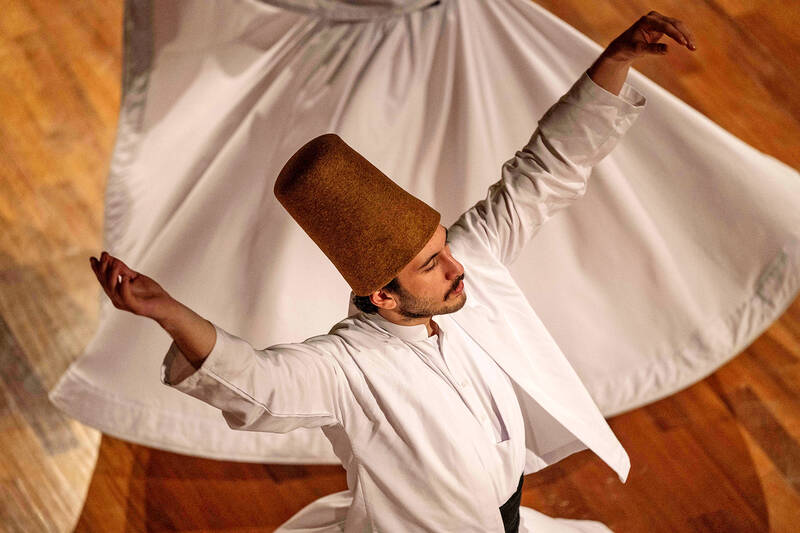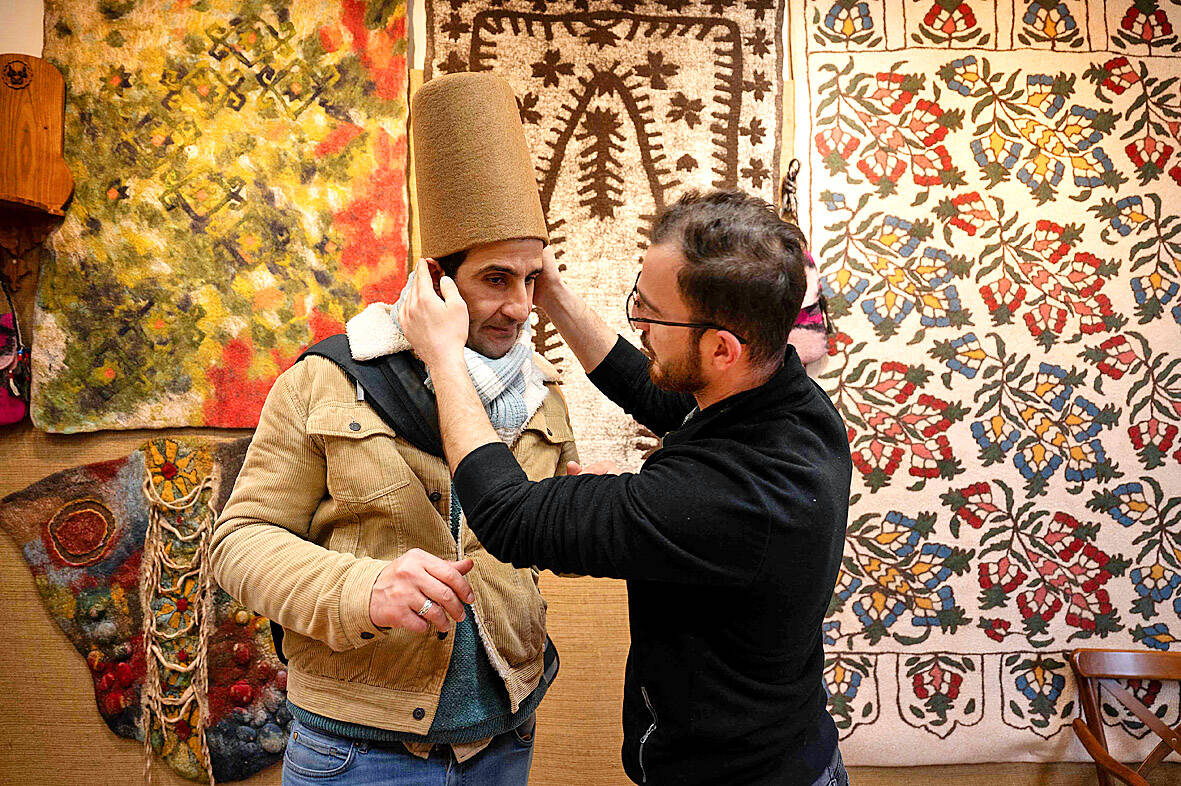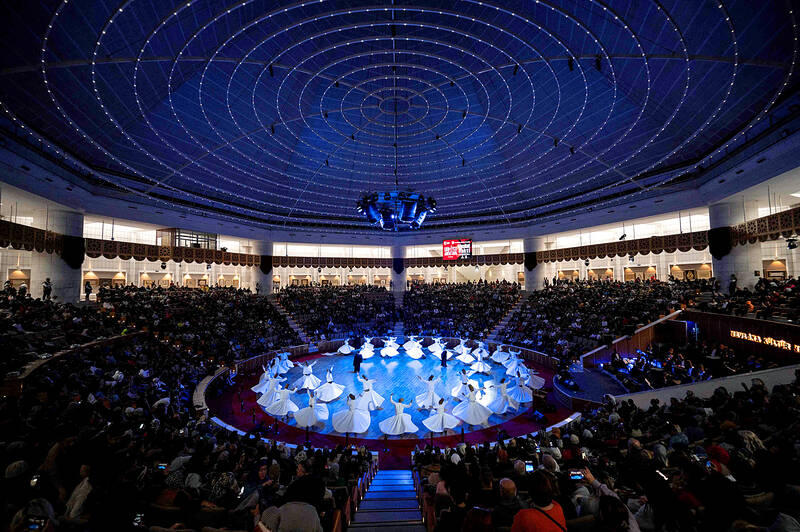The skirts of whirling dervishes twirl in a symphony of disco colors celebrating mystic Sufi poet Rumi at a cultural center in central Turkey’s Konya.
Every year, the Seb-i Arus (“Wedding Night”) festival honoring Rumi’s death on Dec. 17, 1273, draws so many people that traditional venues are not large enough to contain the crowds. Pilgrims, tourists, meditation enthusiasts and the curious flock to this vast Anatolian city, where Rumi — or Mevlana as he is known in Turkey — spent most of his life after being driven out of modern-day Afghanistan in the 12th century by Mongol invaders.
His writings have gradually spread well beyond central Asia and won acclaim in the West. Pop legend Madonna adapted one of Rumi’s poems and Beyonce named her daughter after him.

Photo: AFP
“Rumi’s works have been translated into almost every language, and in the United States alone more than 250 books are dedicated to him,” said Nuri Simsekler, a specialist in Persian literature at Konya’s Selcuk University.
“Rumi speaks to all humans, telling us about ourselves,” Simsekler said of Rumi’s enduring popularity seven centuries after his death.
DANCE RITUAL

Photo: AFP
The sema rituals — which honor Rumi’s legacy — are performed by whirling dervishes who don a tall light brown hat, with their arms elegantly spread. The order was established after Rumi’s death by his son and descendants. To the sounds of reed flutes and tamborines, the dervish takes off his long black cloak to dance, but keeps his cylindrical felt hat on. The sikke represents the tombstone which will one day stand at the head of his grave.
Then the dance begins. Extending his right hand toward the sky and his left towards the ground, the whirling dervish forms a link between the two.
“Rumi is the first person on Earth whose death is not mourned but celebrated,” Simsekler said.

Photo: AFP
From her office window, Esin Celebi Bayru has a clear view of the turquoise dome that tops the mausoleum of her illustrious ancestor. Large crowds from Turkey and Iran — where the poet is also a national icon — but also Britain and Singapore are expected to celebrate Rumi’s 750th “Wedding Night” with God at his tomb.
Such a major anniversary of his death was “an opportunity to make him even better known,” said Celebi Bayru, a 22nd generation descendant of the Sufi poet.
She and her brother co-chair the Mevlana International Foundation, created in 1996 in Konya to perpetuate Rumi’s legacy.
“In these times of war, Mevlana’s word is like a light for us,” she said of his many appeals for tolerance and peace. “People come here from all over the world.”
PRAYER OR MEDITATION
Celebi Bayru said she has recently been invited to lecture in places as distant as Hawaii, Australia, India and Pakistan.
Every year, she also receives film scripts, and hopes one day to see a biopic of Rumi brought to the screen. Everywhere in Konya, souvenirs bearing the image of Rumi and dervishes fill stalls.
Ironically, the most famous master of Sufism — who taught tolerance with the words “come, come, whoever you are, wanderer, worshipper, lover of leaving” — is honored in a city with one of Turkey’s most staunchly conservative Sunni traditions. In front of his immense green and gold tomb, a grumpy Sunni pilgrim curses as Rumi’s followers sit on the ground, eyes closed, fingers pointing to the sky. “This is not a place for meditation, it’s for prayer,” the Sunni pilgrim complained.
The incident only makes sheikh Mehmet Fatih Citlak smile. Under a headdress lined with 20 meters of braided green ribbons, he presides over more spiritual semas at the Irfan Study and Research Center in Konya, where prayers are interspersed with music and songs.
“We don’t just twirl around all day,” laughed the sheikh, who was recently invited to perform at Oxford University by its art history department.
“But as long as we stick to our discipline, we don’t mind the public,” he added, saying that “between art and love, Mevlana offered us a third way.
“Everyone interprets him in their own way,” he said. “But if he were better understood, would the world be in the state it is in today?”